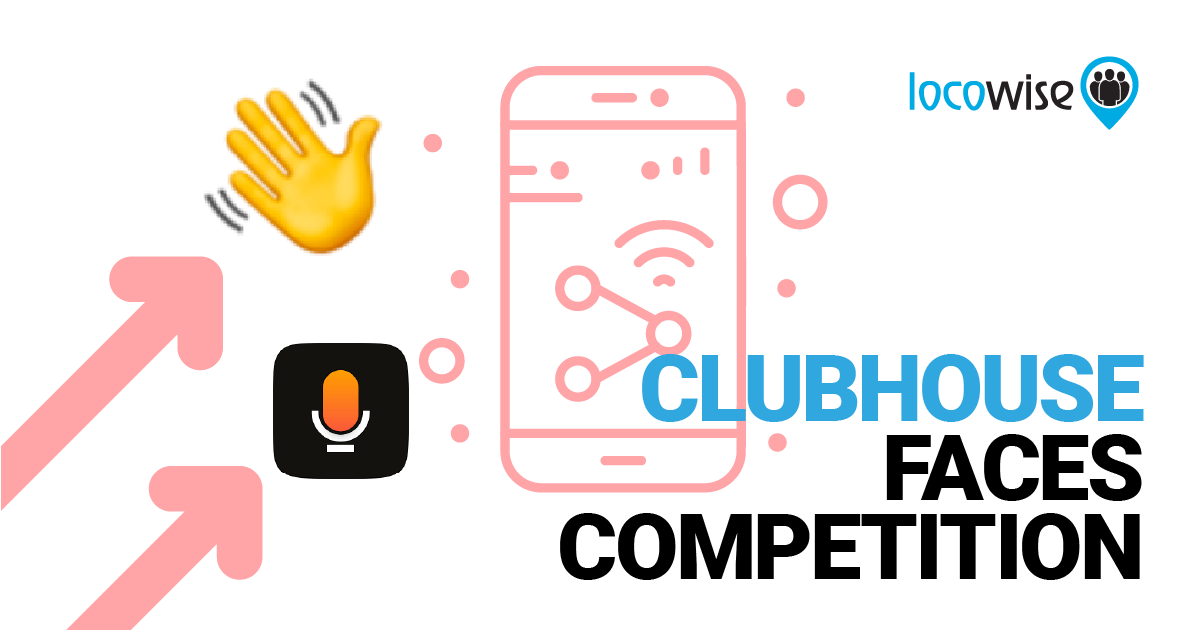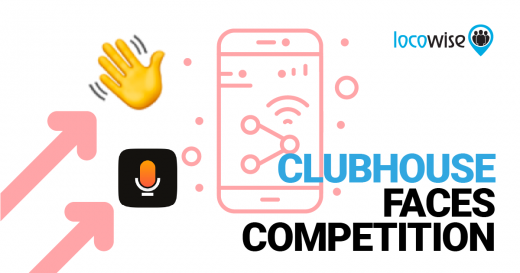Clubhouse Faces Competitors
Clubhouse is new, but it already has a number of potential clones, and they are mostly from social media giants. Will they do the same kind of explosive business?

Clubhouse has had plenty of success over the last few months, and it has made a global impact. There are good things about it as well as bad things, but it hasn’t slowed down, which means there will be an inevitable flurry to try and copy its success. This means that the big platforms on social have decided that the best thing to do right now is make their own version of Clubhouse just so they don’t miss out on the action.
Facebook is currently testing a potential competitor, Hotline. It’s not there yet, but it’s working on it. Mark Zuckerberg recently hinted that his company was going to make its own version of Clubhouse. He dropped the hint while he was actually on Clubhouse, which is ironic. It’s in early development, but knowing Facebook it will be here pretty quickly.
Some leading images from an apparent early version showed that Facebook’s new project actually has a few features that are visually similar to Clubhouse. The chances are that it won’t retain this visual copy feel.
Twitter debuted Spaces last year as part of a test. So it kind of got the advantage over Facebook there. Spaces have a few differences when compared to Clubhouse though. The first real difference is that it has a strict limit on the number of people who can talk at the same time in a Space. Compared to Clubhouse this is a big deal, because Spaces allows 11 people and Clubhouse allows many more.
Another key difference is that Spaces allows an unlimited number of people into a Space. This is different to Clubhouse, which caps the number of attendees at 8,000. All Spaces are public too.
This is interesting. If you’re holding an event that is lucky enough to be having more than 8,000 people attend, then you’d be better suited to Spaces. And with public events, that makes sense.
At the same time, it moves away from the ‘private’ feel of Clubhouse.
Yes, the professional platform is throwing its hat into the ring. No real details yet from LinkedIn itself but it does seem that it is trying to do something a little different to Clubhouse.
The service is meant to encourage ‘professional conversations’, which fits in with the LinkedIn culture, while also managing to offer some of what Clubhouse does. LinkedIn has said it has begun work on the project, and it is designed to simply offer users another way of communication. It’s audio-based, like Clubhouse, and will be quite an intriguing experiment. If it actually allows professional audio conversations it will genuinely offer something different to Clubhouse.
Slack
Not exactly a social media platform, but a big part of how teams work right now, Slack has already publicly talked about how it will copy Clubhouse.
The idea is that Slack’s offering will mimic what it is like to have a discussion with someone in a hallway at work. That’s a neat idea, but it remains to be seen how it will manifest on a platform that is perfectly happy just enabling instant messaging.
Is all this good news?
Yes it is. Clubhouse is still relatively new, but marketers are starting to see the benefits of having an audience that has some kind of exclusivity, or ‘members only’ feel. It has potential to help brands develop thought leadership.
With other companies pulling together their own version of Clubhouse, it is likely that there will be even more choice, and this will drive competition. This means a better service if brands want to jump in. At the same time, any early adoption of these new versions of Clubhouse means that brands will be able to develop a presence quickly.
Digital & Social Articles on Business 2 Community
(36)


